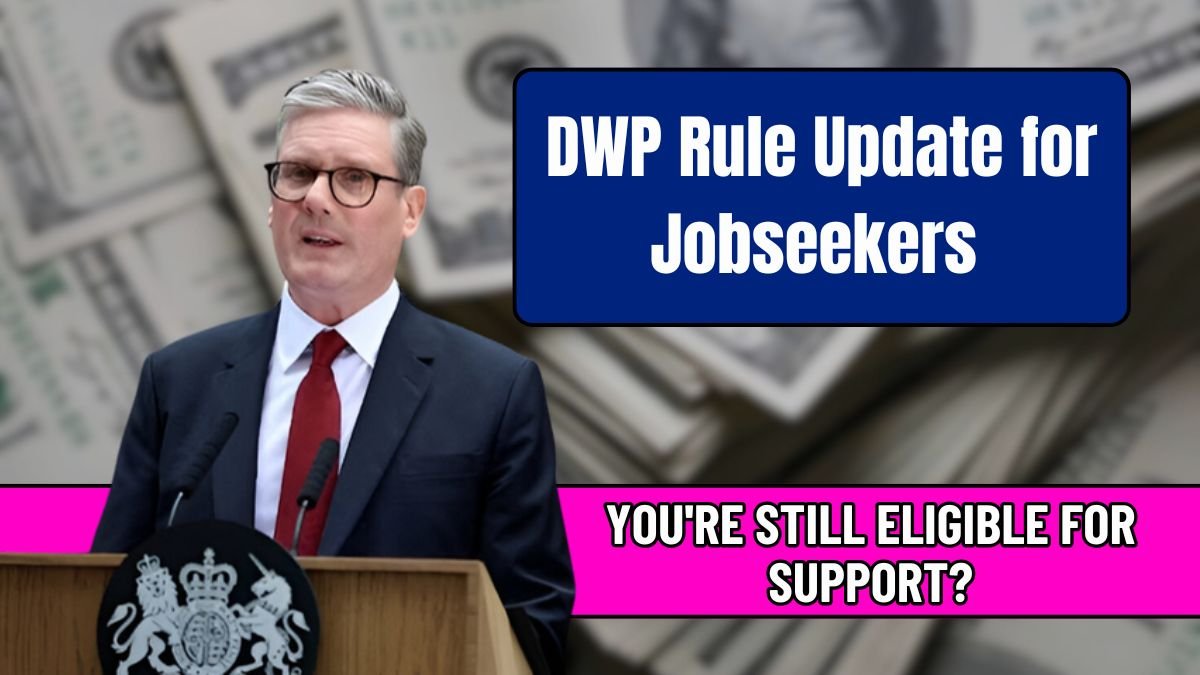The British welfare system will experience another array of upheavals in 2025. The Department for Work and Pensions (DWP) is aiming to initiate new guidelines that directly affect millions of unemployed citizens, Universal Credit claimants, and those on Personal Independence Payment (PIP). If you are currently an active beneficiary of any of the abovementioned schemes or if you are considering making an application in the near future, this article stands to be much pertinent to you.
What Are the Most Common Questions About the 2025 DWP Benefit Rule Changes?
From here, let us analyze and have a detailed look at how these massive changes are set to come about and what you are to do to protect yourself.
Amounts frozen for health elements.
First, let’s talk about the health element under Universal Credit. If you are an existing claimant, you will continue receiving £97 every week. But note that the amount is frozen until 2029/30. This means your income will not grow with the rising inflation, and so gradually your purchasing power will decrease.
And now the shock for new claimants, commencing in April 2026, new applicants for the health element will receive £50 a week—close to half! And similarly, this will also be frozen.
| Year | Existing Claimants | New Claimants |
|---|---|---|
| 2025 | £97/week | N/A |
| 2026 | £97/week (frozen) | £50/week (frozen) |
If you are currently on any of these benefits, do not stop claiming, because in the event of a future reapplication, a new rate of payment will be implemented, and your income will be less.
WCA is ending—do you have PIP?
The Work Capability Assessment (WCA), through which it was determined whether or not you were fit to work, will come to an end in its entirety by 2028. This seems like quite a simple reform at first glance, but can in fact end up being quite challenging.

Rather than WCA, your eligibility for work support will now be assessed according to the score you received on PIP (Personal Independence Payment). This means if you never took PIP, then irrespective of how ill you actually are, you will never receive further help.
PIP rules are changing – now it will be difficult to collect points
Around the end of 2026, the most radical transformation in the PIP rules will be adopted. While in the past, benefits could have been claimed with low scores on various activities (less than 10) now, the new rule requires a minimum of a single activity at 8 points.
That is to say, if your condition is such that you have many mild problems, but none of them is very serious, benefits will be denied to you.
This change may pose huge problems for people with mental health and chronic illness.
New “Unemployment Insurance—Not for All”
A novel program known as Unemployment Insurance is being forged to take the place of Jobseeker’s Allowance and Employment and Support Allowance.
The format of this scheme will be as follows:
- Considerable contributions must be made toward National Insurance (NI) from your part.
- Approvals for the payment will be made for a mere period of 6-12 months.
- The structure of this scheme is modeled upon certain countries such as Germany or Sweden.
It would be fitting if you had a steady full-time job; otherwise, working part-time, being self-employed, or just having gaps in your work history would be of no significance here.
Direct impact on young adults—health support denied to those under 22
Under the reforms taking effect in 2026, young persons under the age of 22, whether gravely sick or disabled, shall be deprived of the health element of Universal Credit.

This change poses grave concerns for these affected young persons with limited support, including autism, neurological conditions, or an impairment in mobility.
What You Can Do
Taking immediate action to defend yourself against these new changes calls for some vital measures.
Use the Benefits Calculator
Through benefits websites like Entitledto.co.uk and Turn2us.org.uk, determine the benefits you may qualify for.
Apply for PIP at the earliest
PIP will be your only support after the WCA is scrapped. Hence, the earlier you do it, the better.
React at the right time upon Migration Notice
If you were moving from legacy benefits to Universal Credit, you have to respond within 3 months; or you risk having your payments stopped.
Ensure to keep your Universal Credit claim active
If you stop your claim and reapply, you may lose benefits because of the new rules.
Ask for help
A number of organizations offer assistance free of charge, including Citizens Advice, Scope, and Disability Rights UK. Reach out to them!
Conclusion
Year 2025 will be yet another significant turning point for the welfare system in the UK. All these changes might directly affect your financial standing—if you are unemployed, disabled, or dependent on welfare schemes for an income. It is time for enlightenment, action, and awareness of your rights. Be informed, keep your ears to the ground, while securing your future.
FAQs
Q1. What is the biggest change to Universal Credit in 2025?
A. The health element of Universal Credit will be frozen at £97 per week until 2029/30 for existing claimants. New claimants from 2026 will receive only £50 per week, which means a significant drop in support.
Q2. Is the Work Capability Assessment (WCA) going away?
A. Yes, the WCA is being phased out by 2028. Instead, eligibility for extra support will depend entirely on having a valid PIP award, which could leave many without help.
Q3. How is PIP eligibility changing in 2026?
A. From late 2026, you’ll need to score 4 or more points in a single activity to qualify for daily living support. This makes it harder for people with multiple moderate issues to receive benefits.
Q4. What is the new Unemployment Insurance replacing ESA and JSA?
A. It’s a time-limited scheme for those who’ve paid enough National Insurance. It may not cover part-time workers or people with inconsistent employment histories.
Q5. Will young people be affected by these changes?
A. Yes, from 2026, people under 22 will no longer qualify for the health element of Universal Credit, even if they have lifelong disabilities, which has raised major concerns.


